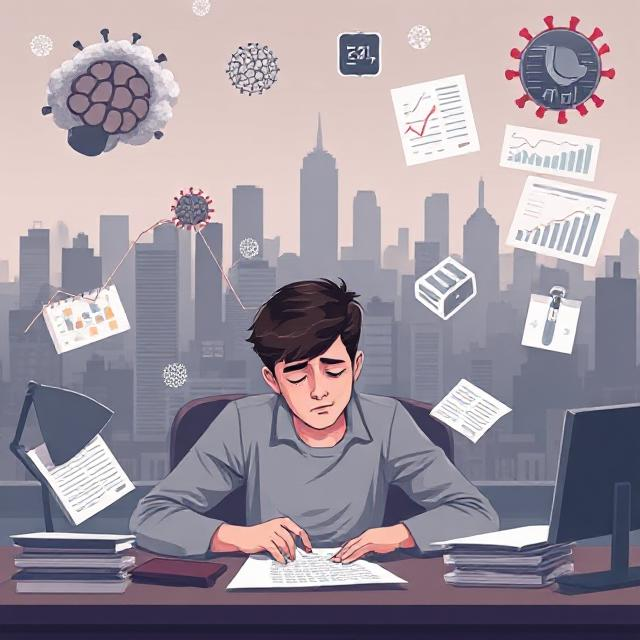Long COVID: A Hidden Crisis Affecting Young People and the Economy
Long COVID isn’t just a health issue—it’s an economic one, too. A new study in Nature estimates that the global cost of long COVID has reached $1 trillion annually, about 1% of the world’s economy.
Long COVID affects an estimated 6%-7% of adults, with symptoms like fatigue, brain fog, and shortness of breath lasting for months or even years after infection. Many people with long COVID struggle to work or have to leave their jobs entirely. This has major consequences—not just for individuals, but for entire industries, especially healthcare.
The Bigger Picture: Work, Money, and the Economy
In the U.S. alone, long COVID may be keeping up to 1 million people out of work. Studies show that people who miss work due to COVID are 7% less likely to return to their jobs within a year. The total labor impact in the U.S. is estimated at $62 billion in lost wages per year—comparable to losses from major diseases like cancer and diabetes.
Why Aren’t We Doing More?
Despite its massive impact, research into long COVID is underfunded. While conditions like cancer receive billions in research funding, long COVID gets only a fraction of that. Surveillance systems to track long COVID cases are weak, making it harder to measure the problem and find solutions.
What Can Be Done?
Experts suggest several steps to tackle long COVID:
• Better tracking: More accurate data collection to understand who is affected.
• Improved ventilation: Upgrading air quality in public spaces to reduce COVID spread.
• More vaccines: Increasing vaccination rates to prevent long COVID cases before they happen.
• Stronger healthcare policies: Expanding access to medical support and disability benefits.
Why Young People Should Care
Long COVID doesn’t just affect older people—it can hit anyone, even those with mild COVID cases. If you’re working, studying, or just planning your future, long COVID could impact your ability to do the things you love. Supporting better research, vaccination efforts, and workplace protections now can help prevent long-term consequences.
It’s time to take long COVID seriously—not just as a health crisis, but as a financial and societal one that affects all of us.




